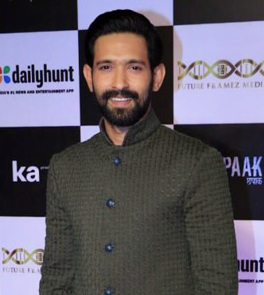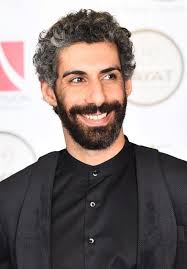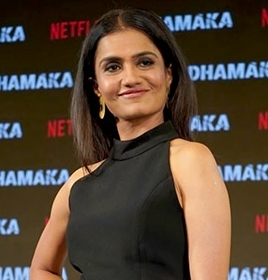10 Most Underrated Bollywood Actors Who Deserve More Recognition
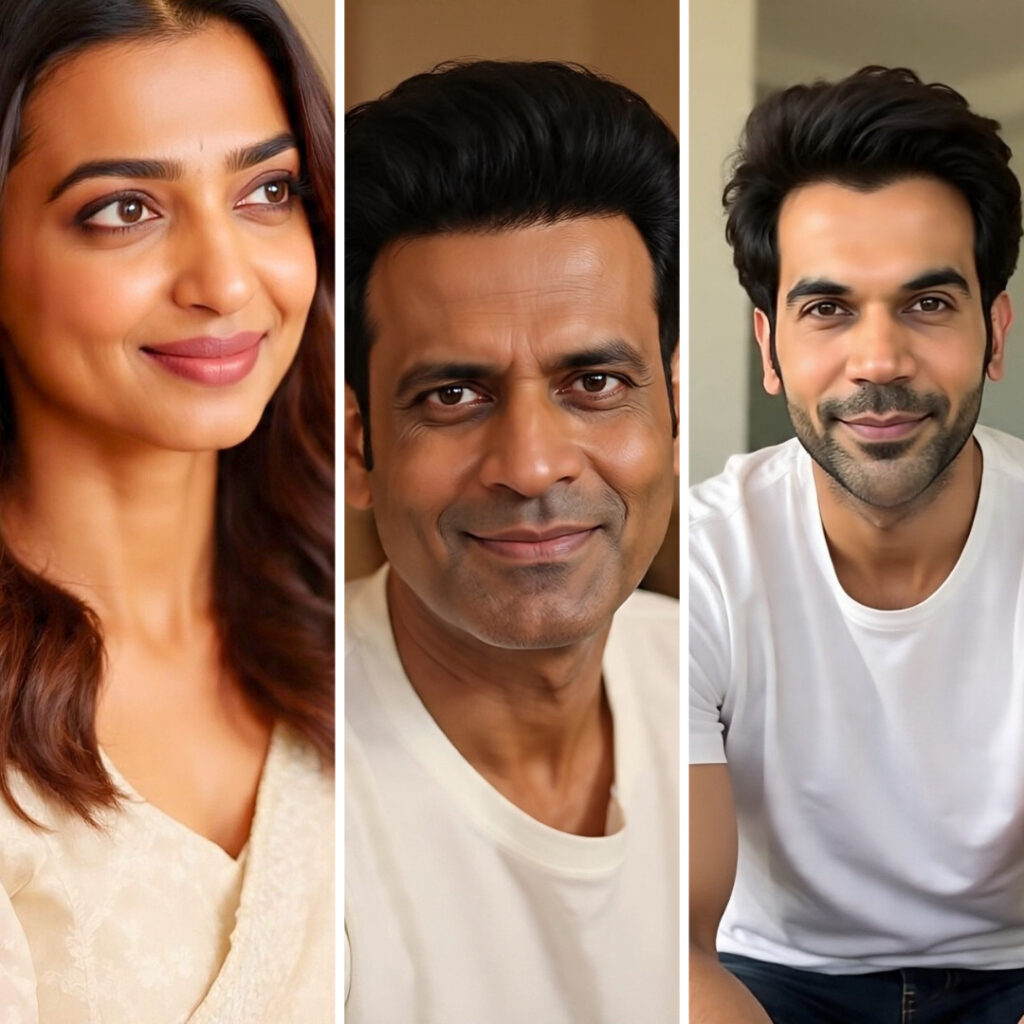
Best underrated Indian actors
In an industry filled with glamour, blockbusters, and big names, many talented Bollywood actors often go unnoticed. While some shine because of their last names or marketing machines, others carry entire films on their shoulders with pure talent — yet remain out of the mainstream spotlight.
In this post, we explore the most underrated Bollywood actors who consistently deliver powerful performances but don’t always receive the recognition they truly deserve.
Table of Contents
ToggleManoj Bajpayee
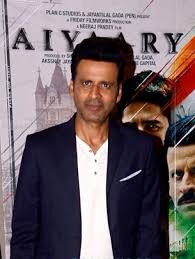
Manoj Bajpayee was born to a farmer in a small village called Belwa in Bihar on 23rd April 1969.
Since childhood he wanted to become an actor. He completed rest of his schooling from Bettiah and later moved to Delhi at the age of seventeen. He came to Delhi with his friend Ravinder Chaudhary and stayed at his brother’s house for some time.
He travelled without a reservation; although he didn’t know that it was illegal. He was told to avoid the TT and for that he stayed awake the whole night.
Manoj first heard about NSD in an interview of Naseeruddin Shah, and since then he decided that he would join it one day. But Failed NSD Efforts
After pursuing graduation from Ramjas College, he applied to the National School of Drama. However, his application was rejected four times.
The two-time National Film Award winner was conferred with Padma Shri, India’s fourth-highest civilian award in March 2019. The actor was honored in the field of art (cinema) for his versatile acting in more than 60 films in a career spanning 20 years.
Bajpayee made his feature film debut with a one-minute role in Drohkaal (1994), and a minor role of a dacoit in Shekhar Kapur’s Bandit Queen (1994). After a few unnoticed roles, he played the gangster Bhiku Mhatre in Ram Gopal Varma’s 1998 crime drama Satya, which proved to be a breakthrough. Bajpayee received the National Film Award for Best Supporting Actor and Filmfare Critics Award for Best Actor for the film.
Vikrant Massey
Vikrant Massey (born 3 April 1987) is an Indian actor known for his work in Hindi films and television. Noted for his versatility, Massey is the recipient of a Filmfare Award. After completing his education from R. D. National College, Massey made his acting debut with the series Dhoom Machaao Dhoom (2007) and then worked in several television serials such as Dharam Veer (2008), Balika Vadhu (2009–2010) and Qubool Hai (2013). Massey expanded to films with supporting roles in Lootera (2013), Dil Dhadakne Do (2015) and Half Girlfriend (2017).
Vikrant Massey is an Indian actor known for his work in television and films. He gained popularity through his roles in various TV shows, including “Balika Vadhu,” “Qubool Hai,” and “Gulmohar Grand.” Massey transitioned to films and has appeared in notable projects such as “A Death in the Gunj,” “Chhapaak,” and “Haseen Dillruba.” He is recognized for his versatility and ability to portray diverse characters. Massey has received critical acclaim for his performances and continues to be an influential figure in the Indian entertainment industry.
Vikrant Massey Biography is as extensive, as has been the screen presence of this star. Vikrant Massey’s age is 33 years and he was born in Mumbai, Maharashtra on 3rd April 1987. He was born in a Christian family and completed his school at St. Anthony High School in Versova, Mumbai. He did his college at R.D National College of Arts &Science in Bandra.
Vikrant Massey’s age is 33 and the star has appeared in 10 television series. He has also appeared in some short movies with Un Hazaaron Ke Naam being his first in 2009. Later he did some more short movies including Best Girlfriend in 2014, Local Girlfriend in 2015, 35 MM in 2016, Copy in 2018, and Detour in 2019.
Radhika Apte Underrated Bollywood actors

Radhika Apte is the best Indie actress known for her unconventional and bold roles in Bollywood. She is the Indie actress of Bollywood. She has also acted in web-series like Lust Stories, Ghoul, Sacred names for which she garnered a lot of fame and praises. She is also acclaimed for her out-going personality and upfront views. She is the Indie actress of Bollywood.
She is indeed the Indie actress of Bollywood. She is a multi lingual actress and has done a variety of roles in every movie she has done.
Radhika Apte was born 7 September 1985 in Pune, Maharashtra, India. She is an Indian super star actress and model. She was born into a Marathi community. She is the Indie actress of Bollywood.
She is married to the world-famous musician Benedict Taylor. While Radhika was in London learning her contemporary dance, a renowned contemporary musician, by the name of Benedict Taylor happened to be there (who later gave music for the 2017 Hindi film Newton).
With similar interests, they hit off instantly. In fact, rumour has it that the two started a live-in relationship after a few months of meeting. But soon, their bond strengthened and in a year, they got so serious about her that they eventually got married in September 2012. It was a court marriage.
Rajkummar Rao

Rajkummar Rao, originally Raj Kumar Yadav, is a distinguished figure in Indian cinema, renowned for his compelling performances in Hindi films. With a career spanning over a decade, he has left an indelible mark, captivating audiences with his versatility and depth as an actor. Rao’s journey in the film industry has been adorned with numerous accolades, including a prestigious National Film Award, four esteemed Filmfare Awards, and recognition at the Asia Pacific Screen Awards. His prominence in the industry was further solidified when he graced Forbes India’s esteemed Celebrity 100 list in 2017.
Embarking on his artistic voyage after honing his skills at the esteemed Film and Television Institute of India, Rajkummar Rao made his cinematic debut in the anthology film “Love Sex Aur Dhokha” (2010). He initially ventured into the cinematic landscape through supporting roles in acclaimed films like “Gangs of Wasseypur – Part 2” and “Talaash: The Answer Lies Within” (both 2012). However, it was in 2013 that he truly etched his name in the annals of Indian cinema with his remarkable portrayals in the dramas “Kai Po Che!” and “Shahid.” His riveting depiction of lawyer Shahid Azmi in the latter garnered him the National Film Award for Best Actor and earned him accolades at the Filmfare Critics Awards.
During his college days in Delhi University, Rajkummar also was an active part of the theatre group of Kshitij Repertory and Shri Ram Centre (SRC). So, before the public commute to and from Gurgaon was convenient, Rajkummar rode his cycle from Gurgaon to Delhi!
Shefali Shah

Shefali Shah (born Shefali Shetty on 22 May 1973) is a talented Indian actress who has worked in films, television, and theatre. She is especially known for her powerful performances in Hindi movies, mostly in independent and meaningful roles. Over the years, she has received praise and awards not just from India, but from other countries as well.
Shefali began her acting journey on the Gujarati stage. In 1993, she made her first appearance on television. After doing small roles on TV and a brief role in the Bollywood film Rangeela (1995), she got her big break in the TV show Hasratein (1997), where her performance was widely appreciated. This opened the door to more lead roles in shows like Kabhie Kabhie (1997) and Raahein (1999).
In 1998, Shefali played a strong supporting role in the crime film Satya, which earned her the Filmfare Critics Award. That same year, she took on her first lead role in the Gujarati film Dariya Chhoru (1999), marking her shift towards film acting.
Shefali has always been careful about the roles she chooses. Because of this, she didn’t act in too many films at once, but the roles she picked were often praised by critics. She was seen in the globally loved movie Monsoon Wedding (2001), and in the popular Bollywood film Waqt: The Race Against Time (2005).
In 2007, she portrayed Kasturba Gandhi in the film Gandhi, My Father, a performance that won her the Best Actress award at the Tokyo International Film Festival. That same year, she also won the National Film Award for Best Supporting Actress for her role in The Last Lear.
In the 2010s, Shefali continued to impress. She played lead roles in films like Kucch Luv Jaisaa (2011), Lakshmi (2014), and Dil Dhadakne Do (2015). In 2017, she acted in a short film called Juice, which won her a Filmfare Short Film Award.
Her career reached new heights in recent years. She starred in the Netflix romantic drama Once Again (2018), and then delivered a breakout performance as a Delhi police officer in the crime series Delhi Crime (2019). Her strong and emotional acting as DCP Vartika Chaturvedi won hearts everywhere.
In 2022, Shefali was seen in several major projects including Human (a Disney+ Hotstar series), Jalsa, Darlings, and the second season of Delhi Crime. Her role in Delhi Crime 2 earned her an International Emmy nomination for Best Actress. She also won another Filmfare Critics Award for her moving performance as a woman dealing with early-onset dementia in Three of Us (2023).
Sanjay Mishra

Sanjay Mishra (born 6 October 1963) is a well-known Indian actor who has made a big name for himself in both films and television. He’s famous for playing both funny and serious roles, and people love him for his natural acting and unique style.
He was born in Darbhanga, Bihar, into a Maithil Brahmin family. His father worked for the Press Information Bureau, and his grandparents were also government employees. Because of his father’s job, his family moved to Varanasi, where Sanjay studied at Kendriya Vidyalaya in BHU. Later, he joined the National School of Drama (NSD) and graduated in 1989, which laid the foundation for his acting career.
Sanjay started acting in movies in 1995 with Oh Darling! Yeh Hai India! and later appeared in films like Rajkumar (1996) and Satya (1998). He also became popular as Apple Singh, a fun and quirky character used by ESPN Star Sports during the 1999 Cricket World Cup.
He became a household name with his role as Shukla, a corrupt yet funny government employee in the TV show Office Office. After doing several TV serials for a few years, he shifted his focus completely to films in 2005, especially after getting noticed in Bunty Aur Babli and Apna Sapna Money Money.
Although he’s often loved for his comedy, Sanjay has also delivered powerful serious performances in movies like Zameen, Charas, Plan, and Satya.
In 2006, he appeared in two big comedy hits — Golmaal: Fun Unlimited and Dhamaal. He continued doing small but memorable roles in many big-banner films. His comic role as RGV in All the Best: Fun Begins and his performance in the satirical film Phas Gaye Re Obama earned him even more popularity.
He even stepped into directing with a film called Pranaam Walekum, released in 2016, and another film Dhama Choukdhi.
One of the most important moments in his career came in 2014 when he played the lead role in Ankhon Dekhi, where he portrayed Bauji, a man who decides to only believe what he sees with his own eyes. His performance was deeply appreciated, and he won the Filmfare Critics Award for Best Actor for this role.
People also loved his funny line “Dhondu, Just Chill” from All the Best, which became quite popular.
He has been a part of many successful films like Bhoothnath Returns, Kick, Dum Laga Ke Haisha, Prem Ratan Dhan Payo, Dilwale, and several meaningful low-budget films. In 2013, he also played the lead in Saare Jahaan Se Mehnga, a film about rising prices that struck a chord with many.
During the 2015 Cricket World Cup, his “Mauka Mauka” commercial also became hugely popular and is still remembered for its humor and catchy tune.
In 2022, Sanjay once again won the Filmfare Critics Award for Best Actor for his serious and touching performance in the film Vadh, proving once again that he’s one of the most versatile actors in India.
Jim Sarbh
Jim Sarbh (born 27 August 1987) is an Indian actor known for his powerful presence in both films and theatre. With a unique blend of charm and intensity, he has become one of the most respected and unconventional talents in the Indian entertainment industry today.
Jim began his acting journey on stage and later transitioned to the big screen, where he quickly gained recognition for his bold and memorable performances. His film debut came in 2016 with the biographical drama Neerja, where he played a chilling antagonist. The role not only earned him critical acclaim but also brought him award nominations, including one for Best Supporting Actor at the Filmfare Awards.
Known for playing complex characters, Jim stood out in major films like Padmaavat (2018), where he played the eccentric and intense Malik Kafur, and Sanju (2018), in which he portrayed one of the close friends of the protagonist. He continued to take on layered roles in acclaimed films such as A Death in the Gunj (2017), Gangubai Kathiawadi (2022), and Mrs. Chatterjee vs Norway (2023), always bringing something unexpected and deeply engaging to the screen.
But Jim’s true love has always been theatre. After graduating from Emory University in the U.S., he started his professional acting career in Atlanta, performing in various plays and even winning a Metropolitan Atlanta Theatre Award for a supporting role. He later returned to Mumbai in 2012 and quickly became a standout figure in the theatre scene.
His performances in plays like Death of a Salesman, The Glass Menagerie, What’s Done is Done, The Merchant of Venice, and Living Room have been widely praised. In 2014, he also took on the role of director and writer with the play Bull and his original piece Eat. His impact on Indian theatre earned him a spot in Forbes India’s 30 under 30 list in 2015 — a rare honor for a stage actor.
In recent years, Jim expanded his influence on digital platforms as well. His portrayal of Dr. Homi Bhabha, the father of India’s nuclear program, in the SonyLIV series Rocket Boys (2022) received widespread acclaim. The role earned him several accolades, including a nomination for Best Actor at the International Emmy Awards, placing him among a rare league of Indian actors to achieve global recognition.
Known for his intelligence, versatility, and artistic courage, Jim Sarbh continues to blur the lines between mainstream and art-house cinema. Whether he’s performing on stage or screen, he brings a depth and authenticity that stays with the audience long after the curtain falls or the credits roll.
Shweta Tripathi Sharma
Shweta Tripathi was born on 6 July 1985 in New Delhi. Her father worked in the Indian Administrative Service (IAS) and her mother was a school teacher. Because of her father’s transferable job, the family moved around quite a bit during her childhood. She spent her early years in the Andaman and Nicobar Islands and later in Mumbai. Shweta fondly remembers her time in the Andamans, calling it the happiest phase of her life. She says, “That’s when I discovered how much I love travelling and being outdoors. Every weekend used to be a picnic on a new island—it was truly an enriching experience.”
She later returned to New Delhi to complete her schooling at Delhi Public School, RK Puram, and then pursued higher education at the National Institute of Fashion Technology (NIFT), where she earned a degree in Fashion Communication.
On 29 June 2018, Shweta married actor and rapper Chaitanya Sharma (popularly known as SlowCheeta) in a beautiful ceremony held in Goa.
Over the years, Shweta has carved a niche for herself in the entertainment world with a wide range of roles. She first gained attention for her performance in the critically acclaimed film Masaan (2015), where she played the girlfriend of Vicky Kaushal’s character. Her honest and natural acting made audiences sit up and take notice.
Before making it big in films and web series, Shweta had already worked in the media world. She was a photo editor for Femina, one of India’s leading women’s magazines. She also worked at Pixion, a post-production house in Mumbai, and even ran her own theatre company called All My Tea Productions. Her early experiences behind the scenes gave her a deep understanding of the creative process.
She’s also been a familiar face in advertising, appearing in popular commercials for brands like Tata Sky, McDonald’s, Vodafone, Tanishq, and Tata Tea.
Shweta’s web career took off with roles in shows like The Trip on Bindass, and she made her Tamil film debut with Mehandi Circus, directed by Saravana Rajendran. She was also part of Zoo, India’s first feature film shot entirely on an iPhone—an experimental project that caught a lot of attention.
Her role as Golu Gupta in the hit web series Mirzapur brought her massive popularity. One particular scene, where her character explores her sexuality through masturbation, was widely appreciated for its bold and realistic portrayal of women’s desires—something rarely seen on Indian screens.
In the film Gone Kesh, Shweta played one of her most challenging roles yet—an aspiring dancer diagnosed with alopecia, a condition that causes hair loss. The story is heartfelt and powerful, highlighting themes of self-worth, beauty, and identity.
She also had a memorable cameo as Begum Zainab in TVF Tripling Season 2, in which her character is in love with an elderly Nawab. In the same year, she played Dr. Shreya in Season 2 of Laakhon Mein Ek, where she tackled the role of a young doctor standing up against a broken healthcare system.
More recently, she was seen in the Disney+ Hotstar series Escaype Live and has even stepped into the role of a producer, showing her growing involvement in the creative world both in front of and behind the camera.
Amruta Subhash
Amruta Subhash is a talented and versatile Indian actress known for her work in Marathi and Hindi films, television, and theatre. A graduate of the National School of Drama (NSD), New Delhi, Amruta has built a strong reputation for portraying powerful and emotional roles across mediums. Over the years, she has earned several prestigious honors, including a National Film Award, two Filmfare Awards, a Filmfare Marathi Award, and a Filmfare OTT Award.
She made her film debut in the critically acclaimed Marathi film Shwaas (2004), which not only won the National Award for Best Feature Film but was also India’s official entry to the Oscars that year. This marked the beginning of a career filled with meaningful and impactful roles.
In 2013, Amruta won the National Film Award for Best Supporting Actress for her role in Astu, a Marathi film that touched hearts with its sensitive storytelling. Many of the films she has been part of have received international recognition — some even winning awards at prestigious film festivals like Berlin and Venice.
Beyond acting, Amruta is also a classically trained singer. She has lent her voice to several Marathi films and even won the Maharashtra State Award for playback singing in the film Nital.
Her acting journey began on the stage. After studying under the legendary Satyadev Dubey at NSD, she appeared in several plays during her college days, including Urvashiam, Bela Meri Jaan, and Mrug Trushna. Once she returned to Maharashtra, she took on leading roles in Marathi theatre. Her performance in Tee Fulrani—an adaptation of My Fair Lady—brought her into the limelight. The play, based on George Bernard Shaw’s Pygmalion and adapted by Pu La Deshpande, was a tribute to the legendary Bhakti Barve, who originally played the part.
Amruta continued her journey in Marathi television, appearing in shows like Zoka, Paaulkhuna, and the widely loved Awaghachi Sansaar on Zee Marathi, where she played Aasawari, a woman who stands up against domestic abuse—a role that made her a household name.
Over time, Amruta smoothly transitioned into Hindi cinema. She starred in White Rainbow (2005), playing a teenage widow in Vrindavan forced into prostitution. In 2008, she was part of Nandita Das’s critically acclaimed Firaaq, based on the aftermath of the 2002 Gujarat riots. She shared screen space with legends like Naseeruddin Shah, Paresh Rawal, and Deepti Naval.
That same year, she appeared in Valu, a Marathi comedy featuring some of the finest actors from the industry—including her mother, the veteran actress Jyoti Subhash. The mother-daughter duo also acted together in Gandha (2009), which was later remade into the Bollywood film Aiyyaa (2012).
Amruta has never shied away from taking on challenging roles. In Tya Ratri Paus Hota (2009), she portrayed a drug-addicted teenager with haunting realism. In Gandha, and many other roles, her performances reflected deep emotional understanding and honesty.
More recently, Amruta has made a strong impact in the digital space. She was seen in Netflix’s Selection Day and gained wider popularity with her fierce performance as Kusum Devi Yadav in Sacred Games (2019). She later played the bold and layered character Lily, a former bar dancer, in the Netflix series Bombay Begums, directed by Alankrita Shrivastava.
Whether it’s a stage play, a regional film, a Hindi feature, or a web series, Amruta Subhash brings depth, soul, and sincerity to every role she plays. She continues to be one of the most respected and fearless voices in Indian cinema and theatre.
Tillotama Shome
Tillotama Shome (born 25 June 1979) is a critically acclaimed Indian actress best known for her work in independent films. She first caught attention with her role as Alice, the shy housemaid, in Mira Nair’s award-winning film Monsoon Wedding (2001). Since then, she’s quietly become one of the most respected names in Indian cinema, known for choosing deeply emotional and socially relevant roles.
In 2018, Tillotama delivered a stunning performance in the film Sir, where she played a housemaid who dares to dream beyond social boundaries. Her nuanced portrayal won her the Filmfare Critics Award for Best Actress, earning her widespread appreciation. She also played important roles in films like A Death in the Gunj (2017) and the anthology Lust Stories 2 (2023), as well as appearing in hit web series such as Delhi Crime (2022), The Night Manager (2023), and Paatal Lok (2025).
Born and raised in India, Tillotama studied at Lady Shri Ram College in Delhi. It was during this time that she joined the famous Asmita Theatre Group, led by Arvind Gaur, where she honed her acting skills through live performances and social storytelling.
In 2004, she moved to New York to pursue a master’s degree in Educational Theatre at New York University (NYU). Her time there was not just about studying—she also taught theatre to inmates in a high-security prison in the U.S., including people convicted of murder. This powerful experience left a deep impression on her and shaped her as both an artist and a human being.
She returned to Mumbai in 2008 after finishing her projects in New York and gradually built her career in Indian cinema with a focus on meaningful and character-driven roles.
Over the years, she has taken on diverse roles in international films as well. She played Deepa in Shadows of Time (directed by Florian Gallenberger), a nun in the Australian film The Waiting City, and a social worker in Gangor, a film based on a story by Mahasweta Devi. Her performance in Dibakar Banerjee’s Shanghai (2012) as Mrs. Ahmadi was deeply moving—Rediff even described it as “one of the most heartbreaking performances of the year.”
She has also appeared in several other thoughtful projects like Tasher Desh, Little Box of Sweets, Butterfly, and Long After. In the powerful film Qissa, she portrayed a girl raised as a boy, a role that earned her the Best Actress award at the Abu Dhabi Film Festival, which she shared with Norwegian actress Julia Wildschutt.
Whether it’s in a quiet indie drama or a bold web series, Tillotama Shome brings empathy, depth, and realism to every character she plays. Her choices reflect her fearless commitment to storytelling that touches hearts and challenges norms.
🔍 Why Are These Talents Overlooked?
In Bollywood, being a good actor doesn’t always translate into fame. Marketing budgets, star power, family connections, and box-office potential often trump sheer talent. These underrated Bollywood actors consistently outperform expectations — but without the commercial muscle, they stay under the radar.
However, with the rise of OTT platforms and content-focused filmmaking, we’re finally witnessing a shift. Audiences are now more appreciative of acting over appearances, and many of these stars are gaining well-deserved visibility.
The Bollywood landscape is evolving, and it’s high time we recognize actors not just for their stardom but for their craft. The underrated stars mentioned above are slowly changing the narrative — one impactful performance at a time.
As viewers, we can contribute by supporting films that prioritize strong storytelling and character work. Let’s move beyond big names and embrace genuine talent.
